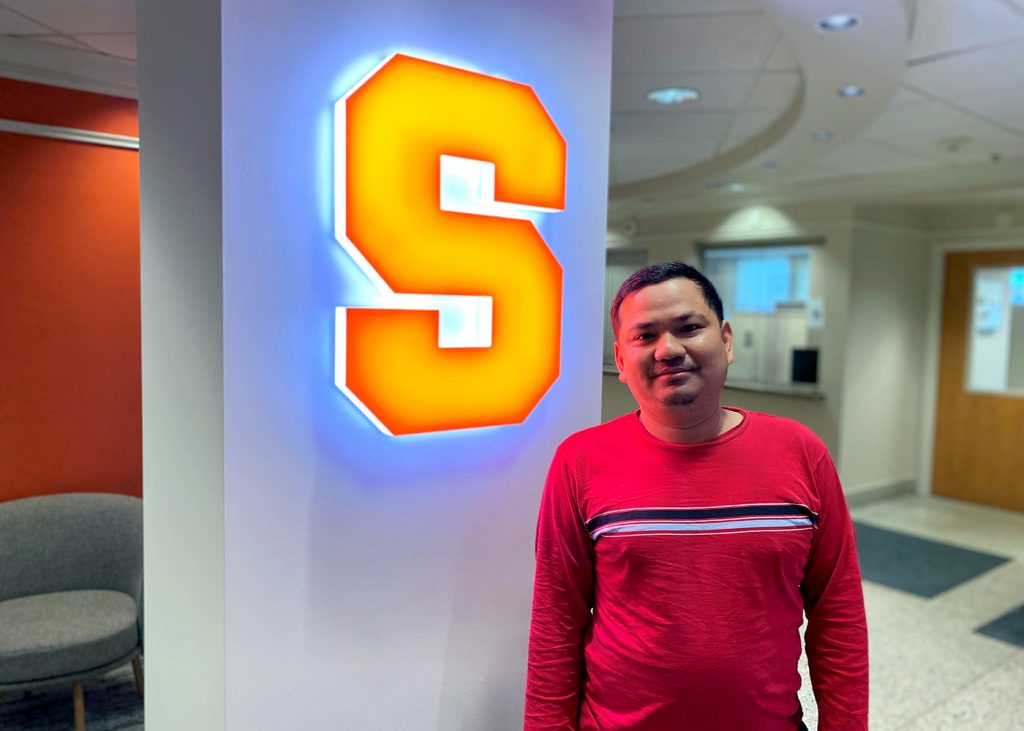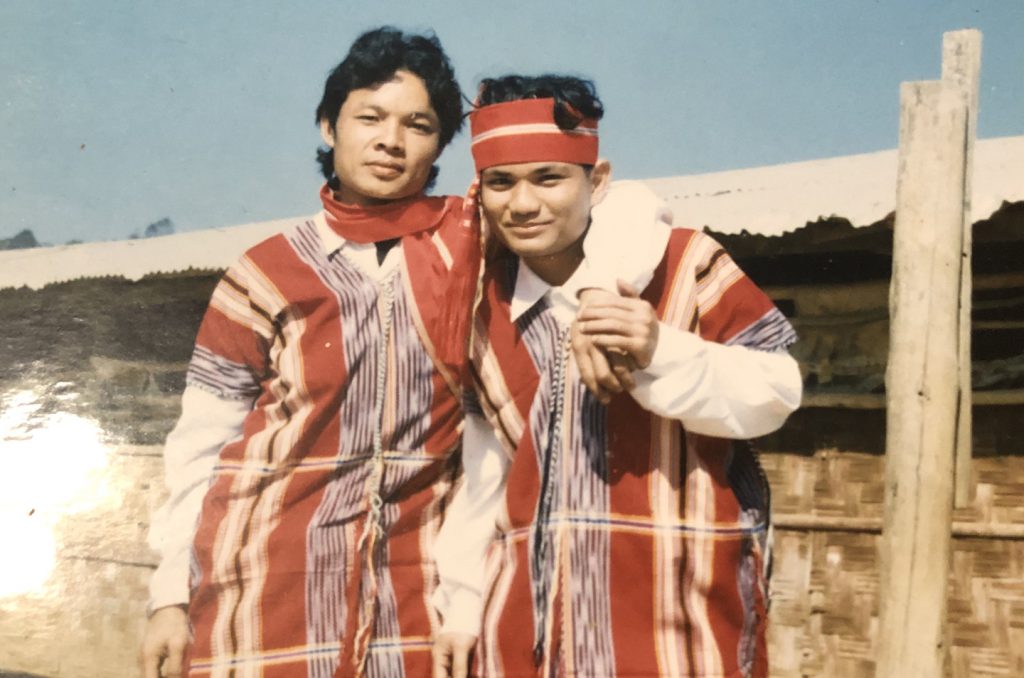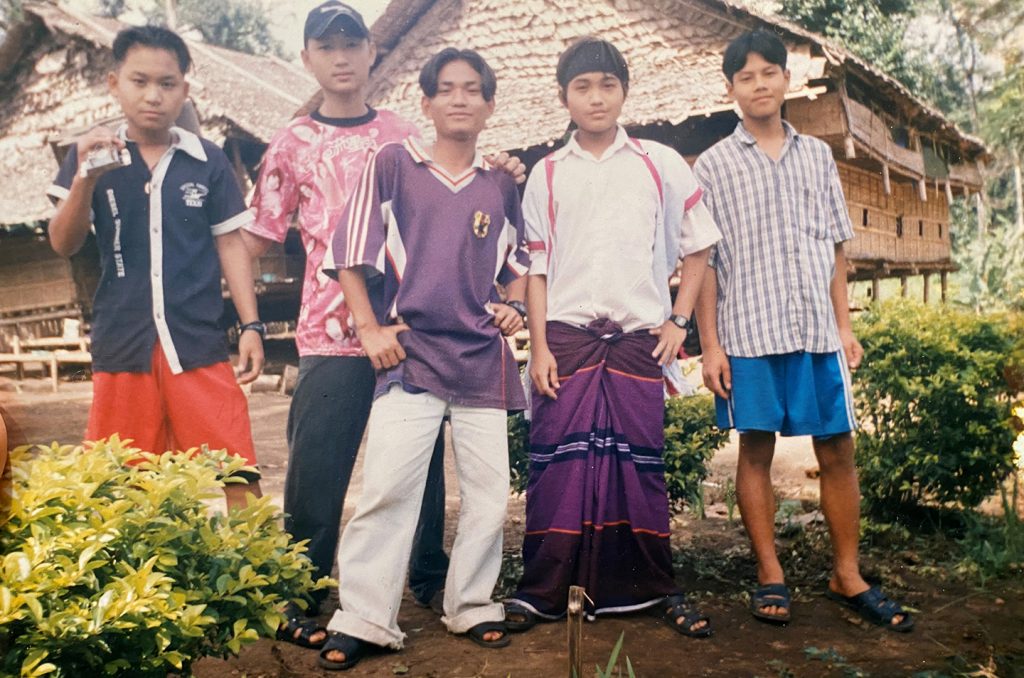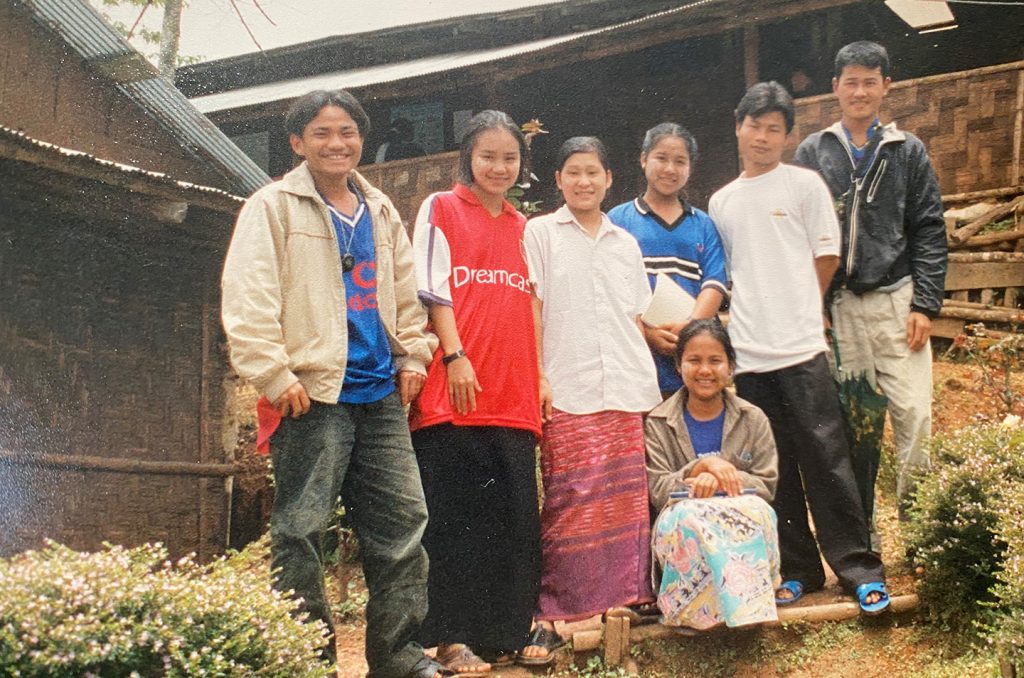
“I had to run and hide in the jungle, without food, from the fighting between the Burmese military troops and the rebel groups,” a distinct memory floods Hsa Mu Na’s mind. “There had been war – Burmese against Burmese – for as long as I can remember.”
Living in Burma (also known as Myanmar) under military dictatorship was a difficult and challenging experience for Hsa and fellow Burman citizens. The military had a long history of suppressing political opposition, limiting free speech, and using violence to maintain power. The military controlled many aspects of the economy, leading to suppressed economic and educational opportunities for citizens, limiting their chances for personal and economic growth.
“I had a lack of education while living there, because education in Myanmar was too expensive for my family. You had to pay a lot for the school fees, materials and supplies. It is hard to go to school for poor families there. For me, I had only completed a few grade levels and then stopped going to school because of the expense,” Hsa recounts.
In 2001, Hsa fled to Thailand’s Nu Poe refugee camp, which is supported by the United Nations High Commissioner for Refugees (UNHCR) organization. He lived there for six years and was able to continue his education through the assistance of the local and international NGOs, and community-based organizations. Hsa successfully earned his high school certificate. However, the quality of refugee education is unusually defined and measured by ineffective standards, leading to the government of Thailand not formally recognizing refugee camp high school graduates as national students.



A New Beginning as a Refugee in the US
From 2008-2014, approximately 109,000 Burmese refugees arrived in the United States from camps and urban settings in Thailand and Malaysia. Hsa was among this large group of refugees, resettling in the United States in 2008 with the hopes of having a better life.
After arriving in the U.S., Hsa found employment working at an optical company. “It was a good job, but I was not yet satisfied with my life. I believe that education is very important. Going to a college was one of my dreams, but I also thought that college was not a possibility.”
“Going to a college was one of my dreams, but I also thought that college was not a possibility.”
Hsa Mu Na
“The higher education level you have, the better job you will get. I knew that education was my greatest goal. However, it’s not easy to get your GED as a full-time worker because you need to manage your time, schedule and be aware of your living costs, too. I could only study part time in my situation at the time. If I worked part time and studied full time, I could not afford my rent or bills,” Hsa says.
In 2013, Hsa joined the English as a Second Language (ESL) program through the Syracuse Educational Opportunity Center (SEOC). The SEOC provides urban communities with innovative academic programs leading to higher education, and vocational training programs leading to gainful employment and economic self-sufficiency. “I studied ESL from 9 a.m. to Noon and then worked from 12:30 to 9 p.m.,” said Hsa, “If I had to work overtime, I would come home at 11:00 PM or midnight. Often, I did not have enough time to do my homework or sleep.”
Through the SEOC, Hsa was able to earn his GED after studying grammar, vocabulary, mathematics, science, social studies, reading, and writing in English. Due to his work schedule, Hsa had to step away from his educational studies for a few years.
A Goal Realized Through Syracuse University’s Part-time HEOP
In February 2014, Hsa, along with forty-five other people from twenty-nine countries became U.S. citizens at the U.S. Northern District Court House in Syracuse, NY.
In January 2022, he returned to the SEOC to attend college preparation classes with the intention of going to college to become a social worker. He would drive by Syracuse University and see students walking around campus. Feeling inspired, Hsa looked into going to several local institutions to pursue his bachelor’s degree but learned that they didn’t accept part time students through the Arthur O. Eve Higher Education Opportunity Program (HEOP). “I learned that Syracuse University is the only school that accepts part time HEOP students. So, finally and happily, I decided to choose to go to Syracuse,” Hsa said.
The Higher Education Opportunity Program was established in 1969 by the New York State Legislature to provide access to independent colleges and universities for economically and educationally disadvantaged students from New York State. While there are many colleges and universities that have full-time HEOP programs in New York State, the College of Professional Studies at Syracuse University has New York State’s only Higher Education Opportunity Program for part-time students.
HEOP provides academic support and financial assistance to eligible students and covers the majority of the cost of tuition, fees, books and parking. HEOP students also receive one-on-one counseling from advisors who are qualified to help them discover their strengths, overcome roadblocks to success, and choose an academic program that meets their interests and career goals.
“The greatest benefit to any student in this program, is they can receive a quality Syracuse University education at little to no cost to them or their families. It goes without saying, this program is a life changing opportunity that provides scholarships and grants to students who otherwise could not attend,” says Marsha Senior, director of Syracuse University’s part-time HEOP. “Our part-time HEOP students are hardworking, dedicated and appreciate the opportunity they’ve been given. They take nothing for granted, and they work hard to maintain their grades.”
“I feel like I am very lucky to be here because of the HEOP program. It is an extraordinary program for part-time students who already have a high school diploma. And it is a very helpful program for students who have to take care of their family and work full-time and want to continue their education,” Hsa says.
Hsa, like many post-traditional students that choose Syracuse University, has shown remarkable resilience and perseverance in the face of adversity. He enrolled at Syracuse in the Summer of 2022, pursuing a liberal arts associate’s degree. His goal is to become a social worker at a refugee center in Syracuse and to go on to pursue his bachelor’s degree.
